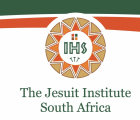South African Reflection: Seeking Truth

Last week on the 19th of February both Harper Lee and Umberto Eco died. I found myself thinking during the week of the influence that both of these writers have had on my own development of a conscience.
Reading Harper Lee's 'To kill a mocking bird', as a white child growing up in Apartheid South Africa was a significant moment of recognising in a narrative from the 1950's similarities with my own context. Like the novel's child protagonist Scout, I was becoming aware that there were problems with the world I lived in. In my early teens this was one of the books that helped me to perceive and name the distorted reality of the racially constructed world in which I was living.
In a different context, Umberto Eco's light hearted and yet serious engagements with people of faith and particularly with Catholicism were helpful. His books served to broaden my world view from a narrow one of belief and adherence to church teachings, to a wide questioning approach to life in which there are no 'sacrosanct' areas. Unusual in an atheist, Eco had both studied theology (he wrote his thesis on St Thomas Aquinas) and he sought to engage in serious dialogue at depth with people of faith. The famous open letters between Cardinal Martini and Eco published in English as 'Belief and non-Belief' bear witness to a man whose mind was subtle, probing and keenly aware of hidden hypocrisies.
Part of what makes us human is that we are fuelled by the desire to make meaning, to see patterns and to more deeply understand our environment and world. To some extent we all have the capacity to be philosophers. Out of our Christian tradition we also all have an injunction to be reflective. We are being challenged by the Gospels to live our lives with a degree of awareness, not just of our own well-being, but also of the well-being of the people around us.
The work of reflecting on our experience, which we may do in writing, in reading and in spending time thinking for ourselves is an essential part of our Christian duty. We have a moral obligation to grow our awareness and to inform our consciences. In the Second Vatican Council, the church taught us that 'All people are bound to seek the truth, ... and to embrace the truth they come to know, and to hold fast to it.' (Dignitatis Humanae 1)
That commitment to seeking truth and holding fast to it, is what links Lee and Eco as writers in my mind. Lee's commitment was in the novel form to explore the truth she saw around her of racial discrimination, and consequences for people. Eco's commitment was to an un-findable, un-nameable truth that, in not being found, left open spaces for dialogue and engagement with all ideas. As I think about the impact their books have had on me, I find a renewed sense of call to search more deeply for that truth which God reveals in my own life.
Follow Frances on twitter @CorreiaFrances


















